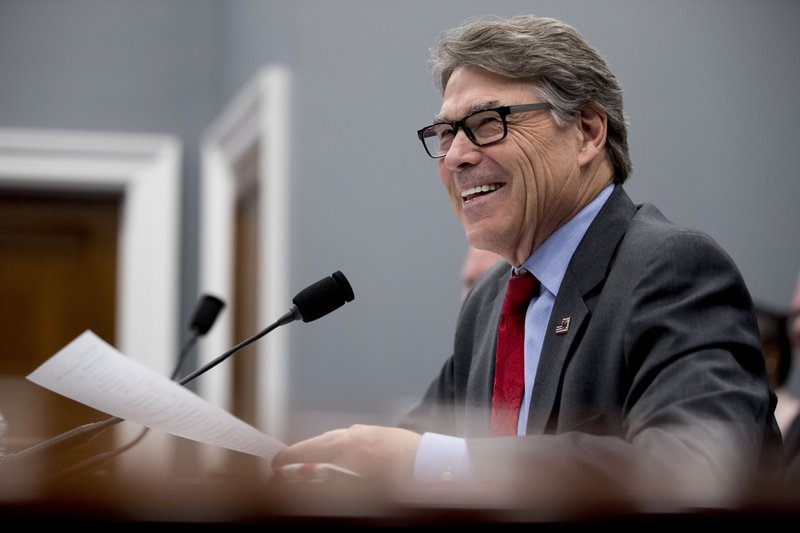UA conference to focus on blockchain
A conference about blockchain technology and its many uses in commerce is scheduled for today at the University of Arkansas, Fayetteville from 8:30 a.m. to 5:30 p.m. in the Reynolds Center for Enterprise Development at 145 N. Buchanan Ave.
Blockchain technology, a type of digital ledger that is not owned by any single entity, gained popularity with the rise of the digital currency bitcoin. It has since been embraced as a way to do business with transparency. Some companies are experimenting with blockchain technology to track items through their supply chains, and more.
Representatives from Walmart, Tyson Foods, J.B. Hunt, Google, Microsoft, IBM and others will be in attendance and provide expertise during panel discussions.
Keynote speakers include Gov. Asa Hutchinson; Frank Yiannas, deputy commissioner for food policy and response with the Food and Drug Administration; and James Regenor, co-founder of Blockchain Resource Group and chief solutions officer of Fr8 Network.
-- Nathan Owens
Subway sped up store closings in '18
Subway Restaurants, one of the world's most widespread dining chains, closed locations at a faster pace last year as sales slumped again in its home market.
While closely held Subway has been retrenching in the U.S. for years now as Americans forgo the Italian foot-longs that once felt like a healthier alternative to traditional fast-food offerings, the shutdown rate quickened in 2018. The entirely franchised chain lost more than 1,100 total shops in the U.S., compared with about 800 in 2017. That marks the third-straight year of a shrinking domestic store count, according to data restaurant researcher Technomic said it obtained from the company.
When asked about the closures, Subway said it's in the process of reviewing its store fleet and some owners "will close, relocate or remodel their locations and that will result in fewer, but more profitable, restaurants." The company will offer U.S. franchisees grants to cover about a quarter of the cost of remodeling restaurants. It's investing $80 million to develop new menu items and improve customer service, Subway said in an emailed response to questions.
Subway, founded more than 50 years ago in Connecticut, faced a blow in 2015 when longtime leader and co-founder Fred DeLuca died. While his sister took over for a while as chief executive officer, she resigned last year.
-- Bloomberg News
U.K. reports Huawei security problems
LONDON -- A British review of Huawei found "significant" security problems with the Chinese company's telecommunications equipment, a conclusion that supports a U.S. effort to ban it from next-generation wireless networks.
The British report, released Thursday, said there were "underlying defects" in Huawei's software engineering and security processes that governments or independent hackers could exploit, posing risks to national security. While the report did not call for an outright ban of Huawei equipment, it was endorsed by the country's top cybersecurity agency.
The conclusions buttress the push by President Donald Trump's administration to convince its allies that Huawei, the world's largest maker of telecommunications equipment, creates grave risks to national security. The White House has accused Huawei of being an arm of the Chinese government that can be used for spying or to sabotage communications networks, a charge that Huawei has vehemently denied.
But the U.S. push has run into hurdles. Many countries, including Britain, have resisted the effort to ban Huawei, arguing that the risk can be mitigated. It is a critical time for wireless carriers as they prepare to spend billions of dollars to introduce next-generation wireless networks, known as 5G, which governments see as essential infrastructure for a rapidly digitizing global economy.
-- The New York Times
U.S. nuclear technology for Saudis OK'd
WASHINGTON -- President Donald Trump's administration has approved six applications for U.S. companies to sell nuclear power technology and assistance to Saudi Arabia, Energy Secretary Rick Perry testified on Thursday.
Perry told the Senate Armed Services Committee that the Energy Department has approved 37 nuclear applications since January 2017, including nine in the Middle East. Besides the six to Saudi Arabia, two were approved for Jordan. Perry did not mention the ninth country in his testimony.
Sen. Tim Kaine, D-Va., asked Perry whether the applications were approved after Oct. 2, when Saudi journalist Jamal Khashoggi was killed at the Saudi consulate in Istanbul. Khashoggi, a Washington Post columnist, lived in Virginia.
Perry said he did not know the specific date.
Lawmakers from both parties have expressed concerns that Saudi Arabia could develop nuclear weapons if the U.S. technology is transferred without proper safeguards.
-- The Associated Press
N.Y. sues drugmaker's Sackler family
As investigators closed in on Purdue Pharma, maker of the opioid painkiller OxyContin, more than a decade ago, members of the family that owns the company began erasing a paper trail of profits and shifting hundreds of millions of dollars from the business to themselves through offshore entities, the state of New York alleged in a lawsuit Thursday.
The legal complaint, released at a news conference by state Attorney General Letitia James, was heavily redacted. Even so, it contains details alleging fraud not only by the Sacklers but also by a group of companies that distributed large amounts of prescription painkillers amid a rising epidemic of abuse that has killed hundreds of thousands of people nationwide.
The major pharmaceutical distributors -- Cardinal Health, McKesson and Amerisource Bergen -- warned pharmacies when their monthly opioid limits were approaching, then helped them manipulate the timing and volume of orders to circumvent the limits, the complaint charged.
The suit names eight Sacklers. It seeks to claw back funds it alleges were transferred from Purdue Pharma to private or offshore accounts held by family members in an effort to shield the assets from litigation; to order the Sacklers to return any transferred assets; and to restrain them from disposing of any property.
-- The New York Times
Business on 03/29/2019

